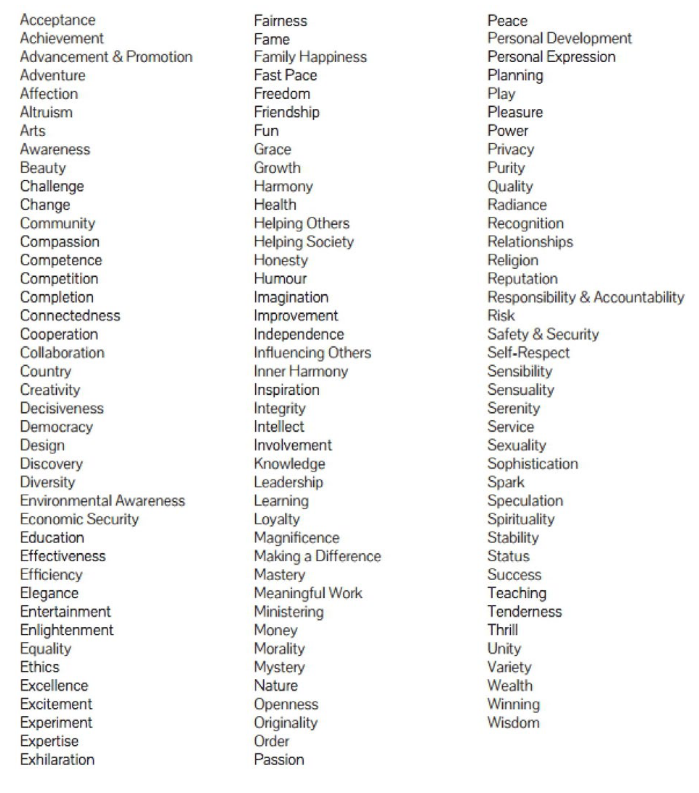Technique 4.10 Value Timeline
Introduction
Values do not necessarily remain stable over time; they do change as a function of age, experience and environmental issues. In particular they can be linked with lifestages, eg marriage, widowhood, childraising, etc
"...the values one places on different areas of life, (eg work, finance, leisure time, family) sent to change over the lifespan. Often in response to important life events, such as birth of a first child and retirement..."
N. Cantor et al as quoted by Lucinda Poole et al, 2024
Many of these events are regarded as turning points where individual shift their priorities on what matters. For example, after the birth of the first child, parents often shift their priorities away from friends and more towards a family; later in life, when children leave home, the family can be perceived as less important.
Furthermore, as people age, their values may change due to physiological and biological changes, eg maturity, loss of abilities, deterioration of senses, etc.
In adolescence, individuals are experimenting in an attempt to create their own identity and find a suitable partner; while older individuals are not seeking new stimulus owing to their physical restrictions including general decline in strength, energy, sharpness of senses, etc
"...Research shows that younger individuals prioritise values involving sensation seeking, While the opposite holds for elderly individuals who tend to place greater importance on values related to upholding social norms..."
O. C. Robinson, et al as quoted by Lucinda Poole et al, 2024
Use a timeline to reflect on your values and their changes over time. This will allow you
"...to experience and become aware of the dynamic nature of values, emphasising that values are not static, and you have the power to adjust or change your values..."
Lucinda Poole et al, 2024
NB
"...your values are your chosen priorities and driving forces in life - the things that matter most to you and motivate and inspire you. Values are things like honesty, freedom, financial independence, commitment and fairness..."
Lucinda Poole et al, 2024
Timeline
Consider what is important in your life and how this has changed over time
Step 1 Identify where your current stage of life in the below time line

Step 2 Identify the top 5 values during your different stages of life, ie what things you value most in different stages of your life, ie childhood, adolescence, 20s, 30 & 40s, 50s & 60s, 70s &80s, etc (referred to the below list of values and for more values to chose from see p. 654.
Questions to help
"...- What were you doing?
- What and who were important to you?
- What were your priorities..."
Lucinda Poole et al, 2024
An example

(source: Lucinda Poole et al, 2024)
List of values

source: Lucinda Poole et al, 2024)
Step 3 Evolution of values over time (observing your timeline you will notice that your values changed over time; explore the evolution of your values, ie
- make a list of values recording those that are are mentioned in more than one stage of your life and tick where they are mentioned more the once
| List of Values*i/Stages |
Childhood |
Adolescence |
20s |
30s-40s |
50s-60s |
60s - 70s |
70s - 80s |
| At a |
Notes
i) Only list values mentioned more than once
- make a list of values that were once important and are no longer important in your current stage of life
Notes
i) tick the appropriate box
